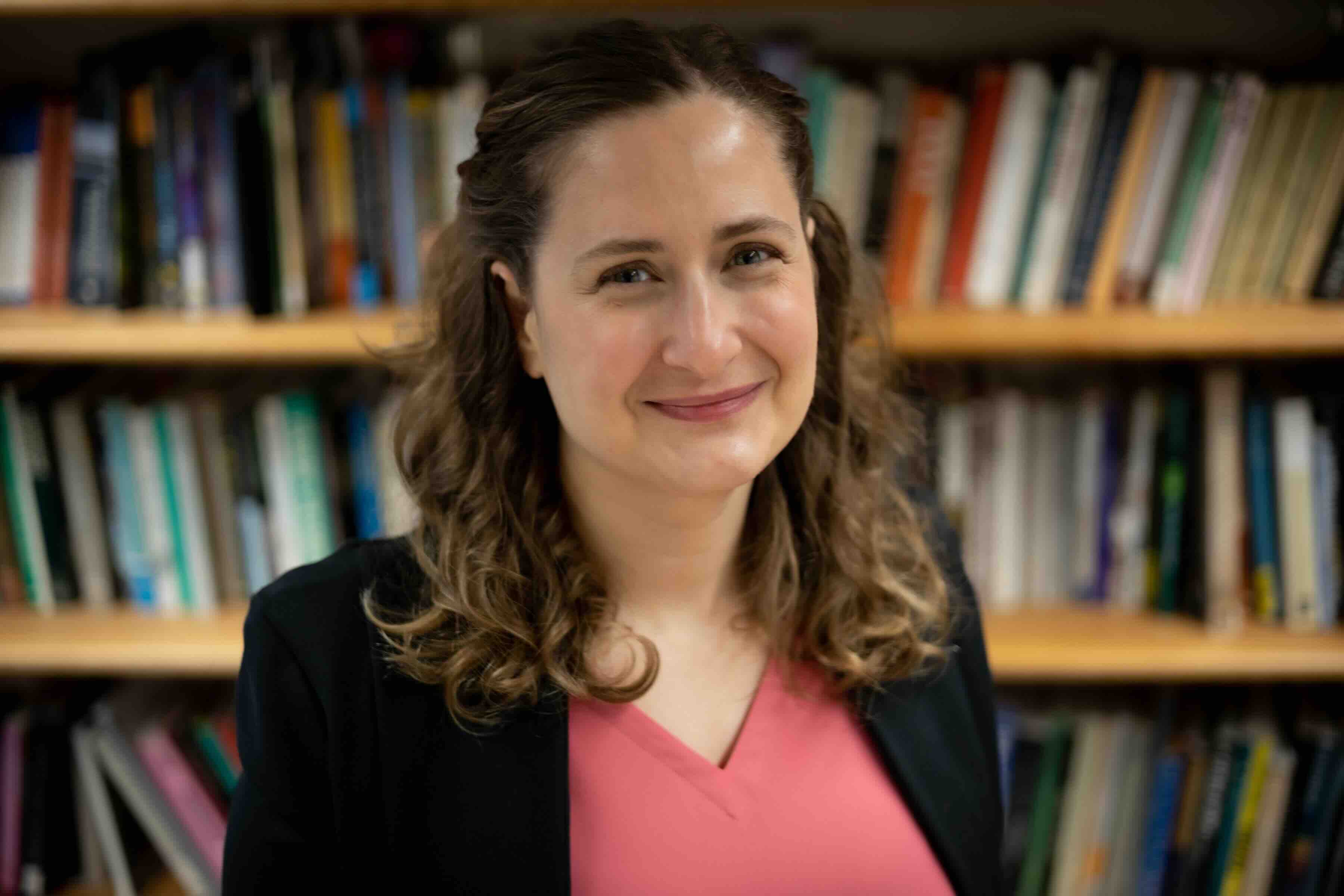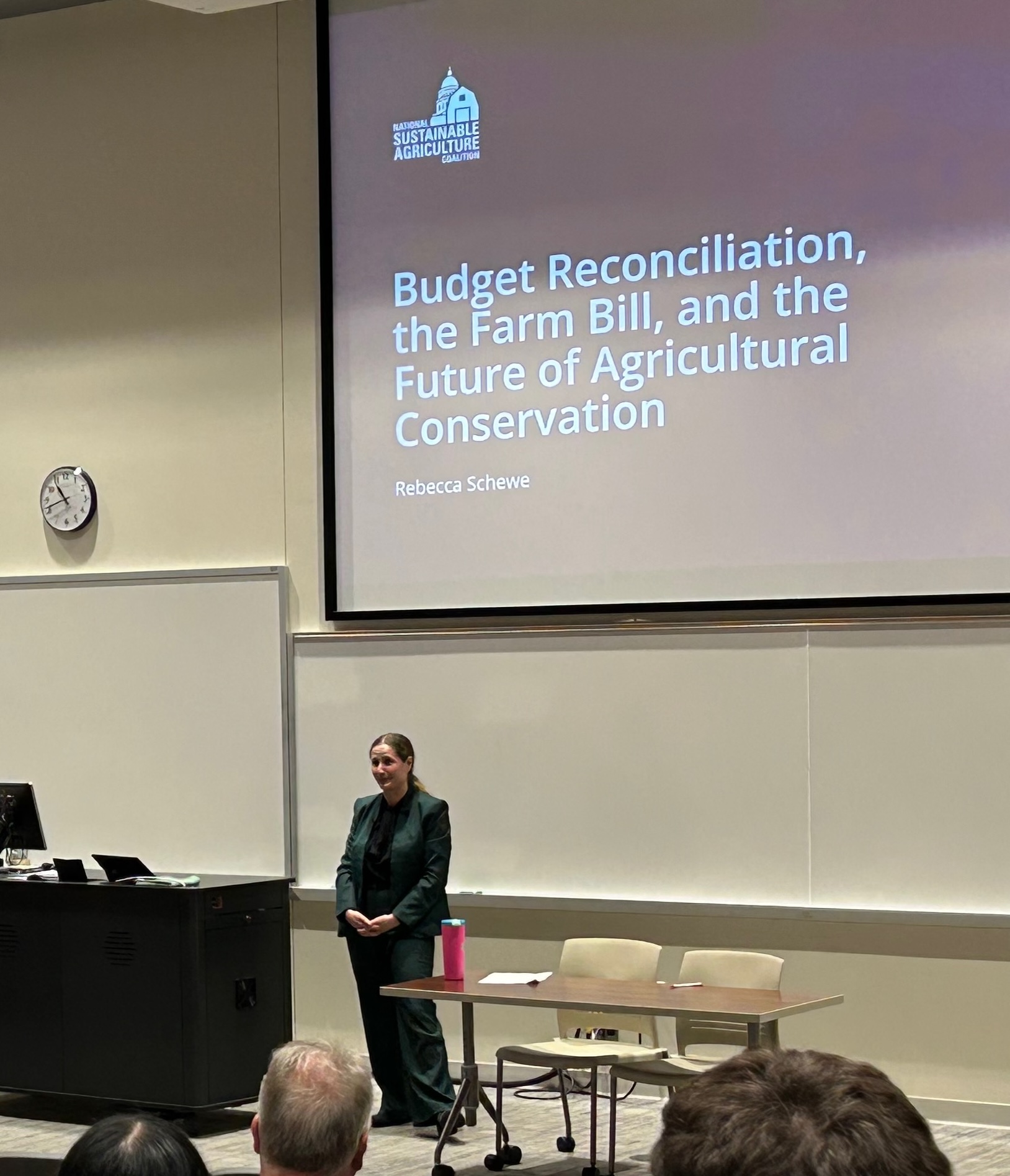Sustainability analyst encourages ‘bill that matters to everyone’
Policy analyst Becky Schewe spoke at the 18th Annual Willeke Lecture in collaboration with the Miami University Institute for the Environment and Sustainability

Sustainability analyst encourages ‘bill that matters to everyone’
Becky Schewe, a researcher and policy analyst from the National Sustainable Agriculture Coalition, visited Oxford for the 18th Annual Willeke Lecture to discuss the merits of the Farm Bill and other government policies affecting agricultural conservation.
“It’s really a bill that matters to everyone,” Schewe said, emphasizing the importance of bipartisan support for the Farm Bill. She offered direct examples of the agricultural impact seen in her own research regarding water quality in New York.
Miami students, faculty, and Oxford community members listened in rapt attention, both in person in 152 Shideler Hall, and, for the first time in the history of the Willeke Lecture, through a livestream.

The Farm Bill affects everything related to food and agriculture in the U.S., including school lunches and crop insurance. Most importantly, “the Farm Bill is really the only way that we federally do anything in terms of environmental management and conservation on farms,” Schewe said.
Without its cost share programs, farmers have trouble implementing conservation practices. Schewe explained that, according to her research in New York, “there is a strong correlation between watersheds where producers are not using the conservation practices and high nutrient loads (nitrogen and phosphorus) which increase algae blooms.” The NSAC will use this research to help educate politicians to pass a new Farm Bill.
Schewe also presented further research on subjects such as agricultural sustainability, food systems, and budget reconciliation. The most recent budget reconciliation bill, she explained, included cuts and changes to the Supplemental Nutrition Assistance Program (SNAP) and commodity programs that pay direct subsidies to farmers. This decreases the likelihood of a bipartisan Farm Bill, making it difficult for farmers to afford sustainable practices and causing repercussions throughout the food system and water supply.
Schewe’s visit to campus was made possible by Miami’s Institute for the Environment and Sustainability (IES), a leader in environmental science and sustainability.
“What Miami is already doing well is a great model, which is to build programs like the IES that draw on students from multiple majors, drawing faculty from multiple majors, so that they’re tackling these problems together,” Schewe said.
Senior Mazie Rion, a double major in Chemistry and Biology, came away from the lecture with a lot to think about. “I never really considered the bills and laws as a person that is in STEM but doesn’t really do social sciences,” she said. “The lecture was really nice and explained a lot of crossover between the two different areas.”
J.D. Wulfhorst, the new director of the IES, said he is excited about what this integration means for the future of the program as well as ongoing collaboration with other departments to increase Miami’s sustainability goals.
“I think the aspiration is that we keep going beyond, because that’s actually what the world needs to happen,” he said.
Students are already seeing this impact. Environmental Science graduate student GiGi Dedrick said, “I like how the classes are actually allowing me to go outside and do environmental things outside instead of just staying in the classroom. It’s very hands-on.”
Beyond classwork, the IES offers a variety of experiential learning opportunities. Efrain Howard, sophomore Zoology and Environmental Science major, takes part in research, works at the Miami Institute for Food, and connects with organizations such as the Ohio Environmental Protection Agency and the Ohio Department of Natural Resources.
Schewe’s valuable viewpoints helped to bolster the IES’s mission of interdisciplinary education in environmental science and sustainability. “That’s the key for research is we need people working with others who are not in their direction,” she said.
Besides presenting her lecture, Schewe met with faculty and students, toured Miami’s farm facility and the Ecology Research Center, and met with local Land Trust representatives.